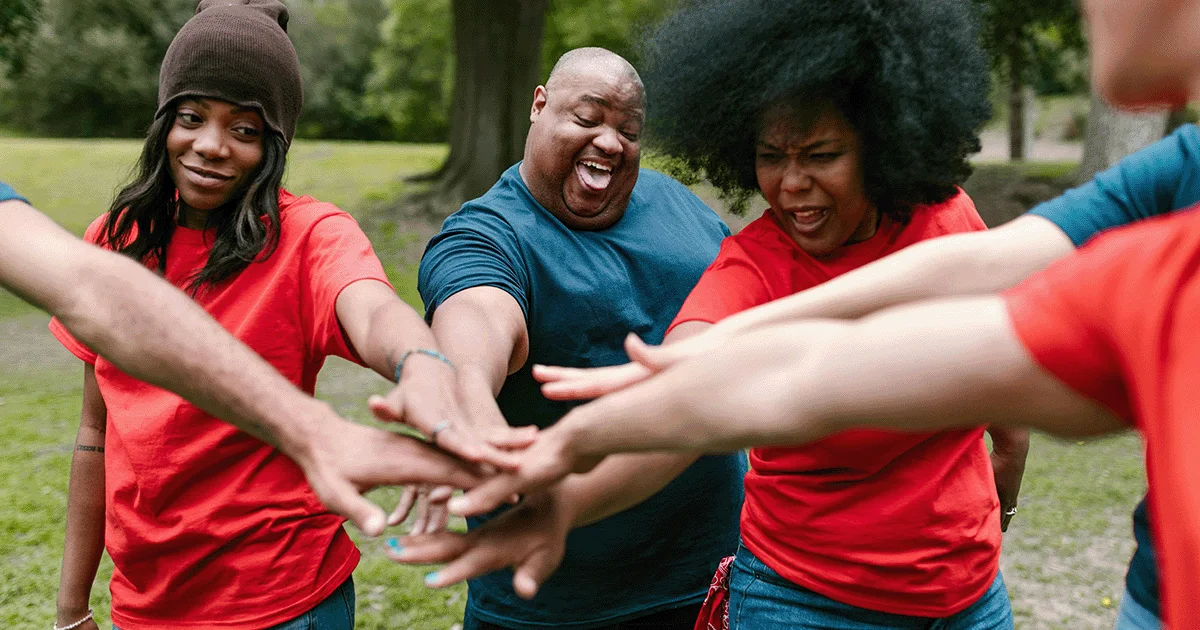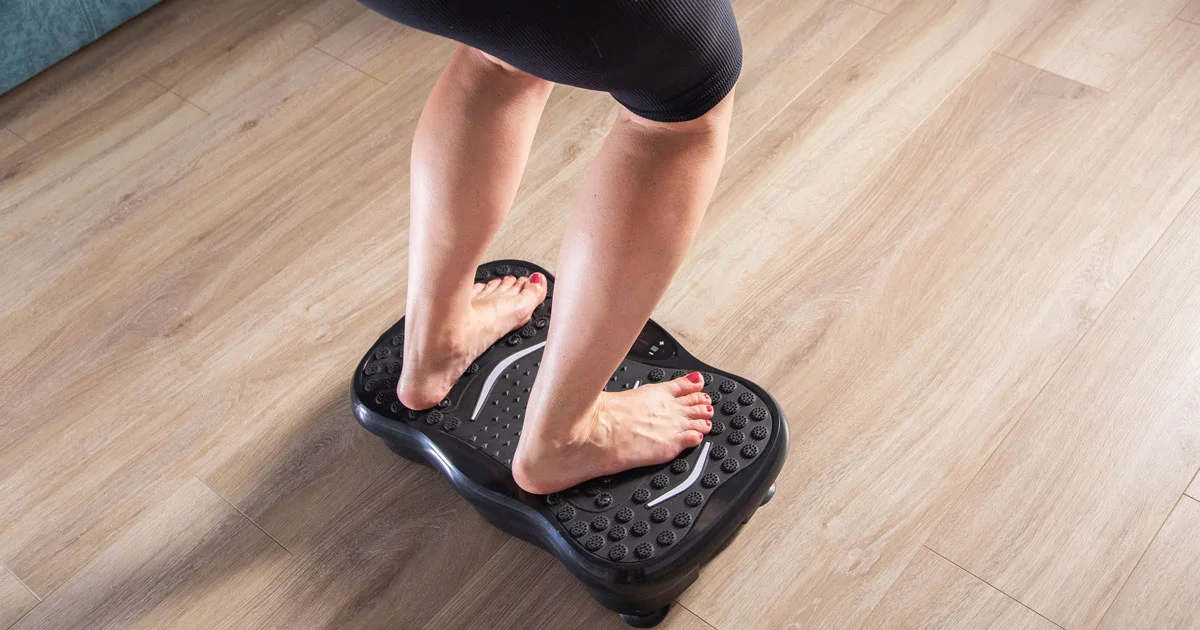Key takeaways
It’s generally safe to drink coffee while taking Ozempic, as coffee and caffeine are not known to negatively interact with the drug.
However, coffee can worsen gastrointestinal side effects, such as nausea, headaches, and diarrhea — all of which are common with Ozempic.
The additives in certain coffee drinks, such as sugar, syrups, and milk, can worsen blood sugar control and inhibit weight loss results on Ozempic.
Here's what we'll cover
Here's what we'll cover
Here's what we'll cover
Key takeaways
It’s generally safe to drink coffee while taking Ozempic, as coffee and caffeine are not known to negatively interact with the drug.
However, coffee can worsen gastrointestinal side effects, such as nausea, headaches, and diarrhea — all of which are common with Ozempic.
The additives in certain coffee drinks, such as sugar, syrups, and milk, can worsen blood sugar control and inhibit weight loss results on Ozempic.
It’s not always safe to mix prescription medications with certain substances, like alcohol. But what about coffee and Ozempic (semaglutide)?
If you’re like up to two-thirds of American adults, you drink some form of coffee daily. So, if you’ve started taking a GLP-1 drug, you may wonder if caffeine — either in coffee or energy drinks — is off-limits for you now.
Good news: You’re probably good to keep up your caffeine routine. But you may want to use a little more caution than you previously did. Here’s what you need to know about Ozempic, coffee, and caffeine.
Can you drink coffee on Ozempic?
Yes, it’s generally safe to drink coffee on Ozempic. No foods or beverages are known to interact negatively with the semaglutide drug, including coffee. So, unless your healthcare provider advises you otherwise, you should be okay to enjoy a daily cup or two of Joe on Ozempic.
Having said that, coffee doesn’t always sit well with people, and taking Ozempic could change the way your body processes caffeine. You could become more or less sensitive — everybody’s different.
That’s because GLP-1 medications like Ozempic slow gastric emptying and can alter absorption rates in the gut, which may affect how quickly caffeine enters your bloodstream. This means you might feel more jittery or more alert than usual. Or you may notice that caffeine seems less potent. It depends on your individual metabolism and how your body responds to the medication.
By slowing digestion, medications like Ozempic can help you feel fuller sooner and longer, making you likely to eat less. These medications can also influence the release of insulin and glucose, which helps manage blood sugar levels.
While caffeine can lower your appetite when you drink it before a meal, it can also have negative influences on your gastrointestinal (GI) system.
Here’s what to look out for:
Fat content: Fats, including the fats in dairy and plant-based milks, can sometimes worsen bloating and nausea — two common side effects of Ozempic.
Sugar content: Sugary coffee drinks can cause blood sugar spikes, which you likely want to avoid if you’re taking Ozempic to treat type 2 diabetes. Plus, high blood sugar can throw off your energy levels and increase nausea, potentially amplifying the GI effects of Ozempic.
Ozempic side effects, with or without coffee
The most common side effects of Ozempic include:
Vomiting
Diarrhea
Abdominal pain
Ozempic may also cause other side effects, some of which could be worsened by too much caffeine in your system. These include:
Shakiness
Headaches
Feeling dizzy or light-headed
Increased heart rate
Dehydration
Anxiety
How can coffee affect the body while on Ozempic?
If you’re a regular coffee drinker, you probably have a good idea of how caffeine affects you. But it can hit different when you’re on Ozempic.
Here are some of the possible changes you might notice when drinking coffee on Ozempic.
Higher heart rate and anxiety
Caffeine can increase heart rate and blood pressure, especially if you have too much of it. Ozempic can also increase heart rate to a small extent — about 2–3 beats per minute. If you have a heart condition, your healthcare provider may recommend abstaining from caffeine while taking Ozempic to avoid placing unnecessary stress on the heart.
Both caffeine and Ozempic can also cause anxiety or jitteriness in rare cases.
With Ozempic, this can be a sign of low blood sugar.
With caffeine, it’s usually due to having too much caffeine, which is considered anything over 400 mg per day (though amounts can vary depending on individual factors).
If you’re someone who tends to get anxious after your cold brew, you might want to consider switching to a less caffeinated brew or beverage on Ozempic.
Headaches
Headaches are a potential side effect of both Ozempic and caffeine. Because Ozempic slows digestion, it can also affect how quickly caffeine is absorbed. This means your coffee may take longer to kick in, last longer, and feel stronger — making caffeine-related headaches more noticeable.
Being mindful of not just how much caffeine you consume but also when you consume it can make a difference in preventing headaches. For example, spacing out moderate amounts of coffee throughout the day or avoiding coffee on an empty stomach may help.
This is especially important if you tend to be sensitive to caffeine, as small changes in timing or quantity can significantly reduce the likelihood of experiencing headaches.
Potentially increased GI distress
Some of Ozempic’s most common side effects affect the GI system, including nausea, diarrhea, heartburn, and indigestion. Coffee — both the caffeine and other compounds in the beverage — can also irritate the gut and worsen heartburn.
Caffeine can slightly relax the muscle that normally keeps stomach acid from rising into the esophagus and can stimulate acid production. Both of these effects may contribute to reflux. Even decaf coffee can trigger GI symptoms, since other components in the drink can increase stomach acidity.
Coffee also has a natural laxative effect, sometimes earning it the nickname “poo juice.” It can stimulate bowel movements, and this effect may be more pronounced when you’re taking Ozempic.
If you’re already sensitive to coffee-related GI issues, you may notice these effects more strongly while on Ozempic. However, this doesn’t mean everyone will experience severe discomfort. Reactions vary from person to person, and most GI side effects from Ozempic tend to be strongest at the start of treatment and often decrease over time.
Slower weight loss
Caffeine can suppress your appetite, which might make it seem like a helpful tool for weight loss. However, the effect can be offset if your coffee is loaded with sugar, cream, flavored syrups, or other high-calorie add-ins. These extras can quickly add up, increasing your calorie intake and potentially slowing down your progress on Ozempic.
For those taking Ozempic to manage type 2 diabetes, it’s especially important to be mindful. Added sugar in coffee can cause blood sugar spikes, which can undermine the very purpose of the medication. Even seemingly small amounts of sweeteners or flavored creamers can have a noticeable effect over time.
By keeping your coffee simple and limiting add-ins, you can get your caffeine fix while staying on track with your weight management and blood sugar goals. Small adjustments like switching to unsweetened milk or skipping syrups can make a meaningful difference in supporting the benefits of Ozempic.
Keeping your brew as basic as possible can help you stay on track while taking Ozempic.
Higher risk of dehydration
Another concern about coffee is that it can be dehydrating. If you are experiencing some of the less desirable side effects of Ozempic — namely, nausea, vomiting, and diarrhea — those can also be dehydrating. So, what does that mean for coffee lovers who happen to be taking Ozempic? It depends.
For people who are used to regularly drinking coffee, some some research suggests coffee may not be as dehydrating as its reputation suggests
But drinking a lot of coffee — 500 mg of caffeine or more — can have a diuretic effect. In other words, coffee can make you pee more, leading to or worsening dehydration. (Low to moderate coffee consumption in those regular coffee drinkers does not seem to have the same pee-inducing effect.)
However, it’s worth noting that the amount of caffeine needed to cause a diuretic effect is above the daily recommended limit anyway. Health experts generally recommend limiting caffeine consumption to 400 mg (4 cups) or less daily (though individual recommendations may vary).
If you experience vomiting, diarrhea, or diuresis (urinating too much) while taking Ozempic, rehydrate with water, not coffee.
Can you have caffeine at all on Ozempic?
For many people, the answer is yes, you can have some caffeine on Ozempic. Plus, having a small amount before meals could even help suppress your appetite.
Having said that, there are risks associated with caffeine consumption, and some people may be better off limiting their intake — or quitting altogether — while taking Ozempic.
For example, some research has found that caffeine can raise blood sugar levels in people with type 2 diabetes and keep them elevated for longer. Depending on the severity of your condition, your healthcare provider may recommend avoiding caffeine altogether while on Ozempic.
You also may want to check with your provider about drinking coffee on Ozempic if you:
Have insomnia or another sleep disorder
Have migraines or chronic headaches
Have anxiety
Have ulcers or gastroesophageal reflux disease (GERD)
Have high blood pressure
Have an arrhythmia
Take certain medicines or supplements, such as stimulants or heart or asthma medications
Health benefits of coffee
Caffeine can offer several health benefits, some of which may be of particular interest to people with type 2 diabetes and those who take Ozempic.
Caffeine’s more well-known benefits — like increased energy and reduced fatigue — are just the beginning. Moderate caffeine consumption can also offer potential perks such as improved physical performance, faster reaction times, and short-term memory boosts.
Regular coffee consumption has been linked to a lower risk of type 2 diabetes, regardless of sex, body weight, age, and smoking status. The drink may help you with your weight loss goals, too. For example:
Coffee can help speed up calorie-burning while decreasing your appetite and, in turn, how much food you eat. This can promote weight loss.
Drinking coffee before and after exercise may accelerate fat burning and reduce how much you eat post-workout. This may make it easier to lose weight, though more research is needed.
Coffee can help you feel more alert and energized thanks to its caffeine content. This can make workouts feel easier and help you stick with your exercise routine while taking Ozempic.
Some studies suggest coffee could be associated with a reduced risk of pancreatitis and gallstones — two of the potentially serious side effects of Ozempic. However, further research is needed to confirm this potential association. Furthermore, no research has been done specifically to see if combining Ozempic with coffee reduces the likelihood of experiencing these risks on Ozempic.
What should you drink on Ozempic?
While there’s no one “best” beverage on Ozempic, water is arguably your best option. Water can prevent dehydration, soothe nausea, and even help boost weight loss when consumed consistently and as part of a healthy diet.
Drinks to avoid include dairy milk (especially if it irritates your gut), carbonated beverages, alcohol, and anything with lots of added sugar.
You’ll notice we didn’t include coffee in that list. That’s because you may find it still sits well with you while taking Ozempic.
If that’s the case, lucky you! If it isn’t, you still have plenty of ways to enjoy caffeine, albeit in lesser amounts, while taking Ozempic. (Just be sure to avoid consuming more than 400 mg per day.)
Tea may be a good alternative if you fall in the latter camp. Keep in mind that black, white, and green varieties, as well as matcha and yerba mate, contain varying amounts of caffeine.
Sometimes, these drinks can contain even more caffeine than a cup of coffee! You will have to check the individual information for the tea you are interested in consuming to see how it measures up. You can always make your tea more diluted so you get the flavor but minimize your caffeine exposure.
If you’d like to avoid caffeine entirely, herbal teas may fit the bill. Or you can explore healthy beverage options like:
Coconut water
100% fruit or vegetable juice (which you can dilute with water to cut the sugar content in a given volume)
If drinking water feels like a chore, there are a lot of ways to spice up a boring glass of water. You can slice up fresh fruits and add them to your water for extra flavor. You can even add a slice of ginger to sparkling water for your own homemade ginger ale. Or, get creative with fresh herbs. Strawberry basil or mint citrus, anyone?
What should you eat on Ozempic?
There’s no one food you must eat while taking Ozempic. That said, experts typically recommend a balanced diet that includes a mix of lean proteins, healthy fats, and fiber.
Some foods to eat on an Ozempic diet include:
Lean proteins (e.g. poultry, seafood, legumes)
Healthy fats (e.g. avocado, olive oil, fatty fish) in moderation
Fiber-rich fruits, veggies, and whole grains
While nothing is “off-limits,” foods to avoid on Ozempic often include anything that is overly fatty, fried, processed, or spicy. These items can worsen side effects and/or might make weight loss or diabetes control more challenging.
You’ll also want to avoid fruits with a high glycemic index, namely, watermelon and pineapple. Instead, choose blood sugar-friendly options like lemon, strawberry, orange, lime, and cucumber.
If you’re experiencing nausea on Ozempic, try these tips:
Drinking ice-cold water or clear drinks
Eating foods that are bland, low-fat, or have a high water content, like soup
Avoiding greasy, sweet, high-fat, or fried foods
Staying upright after you eat (i.e. don’t lie down)
Eating more slowly
Getting some fresh air outside
If you have questions about what to eat and drink while taking Ozempic, talk to a healthcare professional or registered dietitian.
Bottom line
You don’t have to give up your daily cup of coffee just because you’re taking Ozempic. Coffee and caffeine aren’t known to interact with the drug. But you may notice changes in how your body responds to the treatment. Some people could experience more nausea, jitteriness, or headaches when combining the two, and sugary, high-calorie coffee drinks can undermine both weight loss and blood sugar control.
Here’s what to remember when it comes to mixing coffee and Ozempic:
Coffee itself tends to be safe to drink on Ozempic for most people, but pay attention to how your body reacts and stick to moderation (no more than 400 mg of caffeine per day, or about four cups of coffee, or even less if that’s what your healthcare provider suggests).
Limit add-ins like syrup, sugar, and milk or cream, which can worsen GI issues and mess with your blood sugar levels and weight loss progress.
Stay hydrated with water and other low- or no-calorie beverages, especially if you’re also experiencing side effects like diarrhea or vomiting from Ozempic. Remember that artificial sweeteners can worsen diarrhea.
If you have diabetes, heart conditions, migraines, or other health conditions, be sure to talk to your healthcare provider about mixing Ozempic and coffee.
Frequently asked questions (FAQs)
Does coffee help you lose weight?
While data is limited, some animal-based research has found a clear association between caffeine and weight loss. Limited evidence is available in humans, but existing evidence suggests that higher caffeine intakes are associated with weight loss. The higher a participant’s caffeine intake, the lower their body weight and fat mass.
Coffee may also be useful for weight loss maintenance. According to one study, individuals who lost weight and kept it off were more likely to drink more cups of coffee and caffeinated beverages on a daily basis than the general population.
DISCLAIMER
If you have any medical questions or concerns, please talk to your healthcare provider. The articles on Health Guide are underpinned by peer-reviewed research and information drawn from medical societies and governmental agencies. However, they are not a substitute for professional medical advice, diagnosis, or treatment.
Ozempic Important Safety Information: Read more about serious warnings and safety info.
GLP-1 Important Safety Information: Read more about serious warnings and safety info.
References
Bracamontes-Castelo, G., Bacardí-Gascón, M., & Jiménez Cruz, A. (2019). Effect of water consumption on weight loss: a systematic review. Nutricion Hospitalaria, 36(6), 1424–1429. doi:10.20960/nh.02746. Retrieved from https://pubmed.ncbi.nlm.nih.gov/31657610/
Collins, L. & Costello, R. A. (202r). Glucagon-Like Peptide-1 Receptor Agonists. StatPearls. Retrieved from https://www.ncbi.nlm.nih.gov/books/NBK551568/
Dewar, L. & Heuberger, R. (2017). The effect of acute caffeine intake on insulin sensitivity and glycemic control in people with diabetes. Diabetes & Metabolic Syndrome, 11 Suppl 2, S631–S635. doi:10.1016/j.dsx.2017.04.017. Retrieved from https://pubmed.ncbi.nlm.nih.gov/28935543/
Evert, A. B., Dennison, M., Gardner, C. D., et al. (2019). Nutrition Therapy for Adults With Diabetes or Prediabetes: A Consensus Report. Diabetes Care, 42(5), 731–754. doi:10.2337/dci19-0014. Retrieved from https://www.ncbi.nlm.nih.gov/pmc/articles/PMC7011201/
Gentinetta, S., Sottotetti, F., Manuelli, M., et al. (2024). Dietary Recommendations for the Management of Gastrointestinal Symptoms in Patients Treated with GLP-1 Receptor Agonist. Diabetes, Metabolic Syndrome and Obesity: Targets and Therapy, 17, 4817–4824. doi:10.2147/DMSO.S494919. Retrieved from https://pmc.ncbi.nlm.nih.gov/articles/PMC11668918/
Gorgojo-Martínez, J. J., Mezquita-Raya, P., Carretero-Gómez, J., et al. (2022). Clinical Recommendations to Manage Gastrointestinal Adverse Events in Patients Treated with Glp-1 Receptor Agonists: A Multidisciplinary Expert Consensus. Journal of Clinical Medicine, 12(1), 145. doi:10.3390/jcm12010145. Retrieved from https://pmc.ncbi.nlm.nih.gov/articles/PMC9821052/
Goyal, R. K., Cristofaro, V., & Sullivan, M. P. (2019). Rapid gastric emptying in diabetes mellitus: Pathophysiology and clinical importance. Journal of Diabetes and its Complications, 33(11), 107414. doi:10.1016/j.jdiacomp.2019.107414. Retrieved from https://pmc.ncbi.nlm.nih.gov/articles/PMC7707148/
Harpaz, E., Tamir, S., Weinstein, A., et al. (2017). The effect of caffeine on energy balance. Journal of Basic and Clinical Physiology and Pharmacology, 28(1), 1–10. doi:10.1515/jbcpp-2016-0090. Retrieved from https://www.degruyter.com/document/doi/10.1515/jbcpp-2016-0090/html
Icken, D., Feller, S., Engeli, S., et al. (2016). Caffeine intake is related to successful weight loss maintenance. European Journal of Clinical Nutrition, 70(4), 532–534. doi:10.1038/ejcn.2015.183. Retrieved from https://www.degruyter.com/document/doi/10.1515/jbcpp-2016-0090/html
Khodarahmi, M., & Azadbakht, L. (2016). Dietary fat intake and functional dyspepsia. Advanced Biomedical Research, 5, 76. doi:10.4103/2277-9175.180988. Retrieved from https://pmc.ncbi.nlm.nih.gov/articles/PMC4863403/
Killer, S. C., Blannin, A. K., & Jeukendrup, A. E. (2014). No evidence of dehydration with moderate daily coffee intake: a counterbalanced cross-over study in a free-living population. PloS One, 9(1), e84154. doi:10.1371/journal.pone.0084154. Retrieved from https://www.ncbi.nlm.nih.gov/pmc/articles/PMC3886980/
Kolb, H., Martin, S., & Kempf, K. (2021). Coffee and Lower Risk of Type 2 Diabetes: Arguments for a Causal Relationship. Nutrients, 13(4), 1144. doi:10.3390/nu13041144. Retrieved from https://www.ncbi.nlm.nih.gov/pmc/articles/PMC8066601/
MedlinePlus. (2023). Dehydration. Retrieved from https://medlineplus.gov/dehydration.html
MedlinePlus. (2021). Caffeine. Retrieved from https://medlineplus.gov/caffeine.html
MedlinePlus. (2024). Glycemic index and diabetes. Retrieved from https://medlineplus.gov/ency/patientinstructions/000941.htm
Muroyama K, Murosaki S, Yamamoto Y, Odaka H, Chung HC, Miyoshi M. Anti-obesity effects of a mixture of thiamin, arginine, caffeine, and citric acid in non-insulin dependent diabetic KK mice. J Nutr Sci Vitaminol (Tokyo). 2003;49(1):56-63. doi:10.3177/jnsv.49.56. Retrieved from https://pubmed.ncbi.nlm.nih.gov/12882397/.
Nehlig, A. (2022). Effects of Coffee on the Gastro-Intestinal Tract: A Narrative Review and Literature Update. Nutrients, 14(2), 399. doi:10.3390/nu14020399. Retrieved from https://www.ncbi.nlm.nih.gov/pmc/articles/PMC8778943/
Novo Nordisk. (2025). Possible Side Effects of Ozempic® (semaglutide) Injection. Retrieved from https://www.ozempic.com/how-to-take/side-effects.html
Panek-Shirley, L. M., DeNysschen, C., O'Brien, E., et al. (2018). Caffeine Transiently Affects Food Intake at Breakfast. Journal of the Academy of Nutrition and Dietetics, 118(10), 1832–1843. doi:10.1016/j.jand.2018.05.015. Retrieved from https://pubmed.ncbi.nlm.nih.gov/30033159/
Reis, C. E. G., Dórea, J. G., & da Costa, T. H. M. (2018). Effects of coffee consumption on glucose metabolism: A systematic review of clinical trials. Journal of Traditional and Complementary Medicine, 9(3), 184–191. doi:10.1016/j.jtcme.2018.01.001. Retrieved from https://www.ncbi.nlm.nih.gov/pmc/articles/PMC6544578/
Schubert, M. M., Irwin, C., Seay, R. F., et al. (2017). Caffeine, coffee, and appetite control: a review. International Journal of Food Sciences and Nutrition, 68(8), 901–912. doi:10.1080/09637486.2017.1320537. Retrieved from https://pubmed.ncbi.nlm.nih.gov/28446037/
Tabrizi, R., Saneei, P., Lankarani, K. B., et al. (2019). The effects of caffeine intake on weight loss: a systematic review and dose-response meta-analysis of randomized controlled trials. Critical Reviews in Food Science and Nutrition, 59(16), 2688–2696. doi:10.1080/10408398.2018.1507996. Retrieved from https://pubmed.ncbi.nlm.nih.gov/30335479/
U.S. Food and Drug Administration (FDA). (2025). Ozempic (liraglutide) injection, for subcutaneous use. Retrieved from https://www.accessdata.fda.gov/drugsatfda_docs/label/2025/209637s025lbl.pdf
Westerterp-Plantenga MS, Lejeune MP, Kovacs EM. Body weight loss and weight maintenance in relation to habitual caffeine intake and green tea supplementation. Obes Res. 2005;13(7):1195-1204. doi:10.1038/oby.2005.142. Retrieved from https://pubmed.ncbi.nlm.nih.gov/16076989/.












